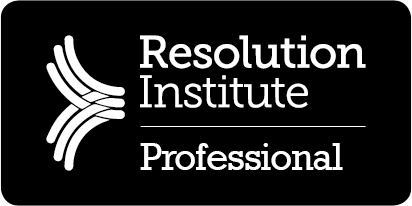Collaborative practice for separation and divorce
Collaborative practice, (also called collaborative family law) is an alternative approach to resolving family law disputes out of court. The collaborative process is also about cooperation, not confrontation, in resolving family law disputes and aims to protect the best interests of both clients, and also children. The collaborative team involves clients, their lawyers and family dispute psychologists.
Collaborative separation and divorce involves an interdisciplinary team approach, with family lawyers and collaborative family dispute psychologists working together to help clients deal with this very stressful and challenging time of life.
Collaborative family lawyers are legal practitioners who are trained in the collaborative process. Each client engages a collaborative family lawyer to advise them individually and to provide independent legal advice. The collaborative family lawyers prepare the necessary legal documents to complete the process.
Collaborative family dispute practitioners are psychologists who have expertise in family dynamics and issues pertaining to separation and divorce. Collaborative family dispute practitoners provide emotional support, teach communication skills, discuss shared parenting, and help ensure that feelings, needs, and concerns are understood and respected during the dispute settlement process. In all collaborative cases, each client is represented by a family lawyer.
The family dispute practitioner/psychologist and lawyers work together as a team wherever possible. The collaborative team works together to resolve all issues in dispute, whether that relates to property settlement, parenting issues, or support.
Key elements of the collaborative process
The Participation Agreement
To protect the key principles during the collaborative process, each client signs a ‘Participation Agreement’ with the collaborative practitioners (lawyers and family dispute psychologist).
The elements of the Participation Agreement are that clients agree:
- • Not to go to court;
- • To treat each other with respect;
- • To focus on the future rather than the past;
- • To focus on the needs and best interests of the children;
- • To voluntarily exchange all information fully and frankly;
- • To listen to each other’s concerns, issues and perspectives;
- • To explore all possible options;
- • To resolve all issues in dispute by consent;
- • To file consent orders in the court; and
- • If they cannot reach a negotiated settlement, then the collaborative practitioners (psychologists and lawyers) will not represent the clients in future litigation and that the information discussed in the collaborative meetings will not be used in future litigation.
In the event that a matter does not settle by collaborative negotiations alone, and either client files an application to the court, the collaborative practitioners (lawyers and family dispute psychologist) must withdraw from the case. If the parties wish to be represented in future court cases then they must employ new lawyers.
The experience in overseas jurisdictions has been that withdrawal rarely occurs in practice because most disputes dealt with collaboratively reach agreement.
For far too long the litigious and adversarial nature of the family law system has been a destructive force on families in dispute. Collaborative separation and divorce is one of an increasing number of methods of resolving family law disputes without recourse to the courts. The early results from North America are encouraging and suggest a significant number of disputes can be resolved using this method of collaborative divorce, without much of the bitterness and entrenched conflict that results from litigation and court process.
In accordance with ethical practice guidelines, FDR Practitioners will not offer other services such as parenting and relationship consultation, child & adolescent therapy or collaborative consultation to any family members that have been involved in a Family Dispute Resolution mediation within this practice.
